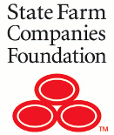Standard 6.2: Mentor professional learning communities
A professional learning community (PLC) for mentor teachers is essential in creating an environment where mentors feel free to network, reflect, and share their mentoring practice with other mentor teachers. Participation in foundational mentor training does not automatically lead to effective mentor practice. As with effective teaching practice, effective mentoring practice develops as a result of purposeful study, practice, and reflection over time.
Mentor PLCs are different than training sessions. While training sessions are focused on particular aspects or topics related to mentoring, mentor PLC sessions are more open-ended or semi-structured, with much of the agenda determined by situational needs of the mentor teachers. The PLC becomes a forum for the exchange of ideas. During PLC meetings, mentors are encouraged to assess their effectiveness based on feedback from their beginning teachers as well as their own personal reflections. Mentor PLCs can be school-based or district-based. They can also be developed through regional partnerships including ROE’s and universities. Depending on whether the mentors are spread across schools or districts, there will be logistical considerations regarding how often and where to hold PLC meetings.
Effective induction/mentoring program leaders develop tools, protocols, and structures in which the reflective work of the mentor PLC can take place. In addition, collaborative norms are established for the group to ensure that all points of view are respected, all voices are heard, and confidentiality is preserved.
Program leaders can ensure that sanctioned time is provided for the mentor PLC to meet on a regular basis throughout the school year. Sanctioned time can take many forms including the following:
- Release time on half-days using substitutes
- Common planning periods for mentors and beginning teachers
- Providing time on institute days
- Excusing mentors/beginning teachers from before and/or after school duties
- Providing coverage during the school day using a floating sub or other certified staff who could be made available
These mentor PLC meetings should be required as part of the commitment mentors make when they agree to support a beginning teacher. At a minimum, these sessions should be scheduled to occur monthly. In ideal programs, mentor PLCs meet twice a month. If half- or full-time release mentors are used, mentors have the time to meet more than once a month.


